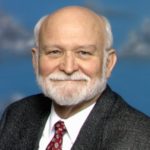Home › Forums › KINGDOM TEACHING – Articles, Videos, Discussion › Contend For The Supernatural – By JD King
- This topic has 0 replies, 1 voice, and was last updated 6 years, 11 months ago by
 Ron McGatlin.
Ron McGatlin.
-
AuthorPosts
-
January 13, 2018 at 10:45 am #7846
 Ron McGatlinKeymaster
Ron McGatlinKeymasterContend For The Supernatural Posted: 12 Jan 2018 07:41 AM PST
In the late 1970s, I watched a spectacular healing take place in a musty, canvas tent. My dad had taken me to an old-fashioned Pentecostal camp meeting. They brought a young girl forward who had severe problems with her legs and prayed for her. She couldn’t walk very well when she went up front. However, by the time she left the stage she walked normally.
That experience ignited my imagination. I witnessed God doing something incredible, and it caused me to be intensely aware of His existence. I witnessed something inexplicable with my own eyes and was deeply impacted. Signs and wonders have a way of doing that.
Nevertheless, somewhere along the way, I lost that sense of awe. With all the dead religion and moralistic teaching, I learned a lot about behavior modification, but not much about the glory.
Things grew worse by the time I entered Bible college. I had gone to school to learn about scripture and deepen my faith, but my sense of wonder somehow faded. Shockingly, I stopped believing in the miraculous in a Spirit-filled Bible college. I don’t know how that was possible, but it happened.
I’d love to tell you that I’m unique in this experience, but I’m not. I talk with hundreds of Christians every year, and I often sense a measure of hesitation when it comes to signs and wonders. Many believe miracles are possible, but not probable.
I was recently talking someone, and they told me that demonic activity didn’t actually occur in America. Dark things may transpire in Africa and Latin America but were not at work in the land of the free and the home of brave. He said, “Demons are mostly a product of social deprivation and superstition. It is a projection of anxiety and mental illness, not an expression of evil.”
Once, when I shared a poignant healing testimony, a highly educated Evangelical pastor challenged me. He asked, “Where is the medical report that confirms this ‘healing.’” His words were dripping with condescension. Apparently, my first-hand observations held no merit at all. He was unwilling to accept anything that was not scientifically verified.
Sadly, many struggle with signs and wonders. Based on Western, materialistic assumptions they assume that all that exists can be observed by the five senses. They have no categories to understand spiritual realities. Everything, to them, is “reductionistic.”
Sadly, those who acknowledge supernatural realities tend to suggest that they’re a secondary part of the proclamation of the gospel. They are comfortable with “signs and wonders” as long as no one teaches, testifies, or pursues them. If miracles show up unannounced, that’s fine, but no one should ever go after them.
One individual who believed this way brought up the following argument from Mathew 16: 1-4.
“The Pharisees and Sadducees came to Jesus and tested him by asking him to show them a sign from heaven…A wicked and adulterous generation looks for a sign, but none will be given it…” (Matthew 16:1,4a)
He told me that, on the basis of this passage, wicked people pursue signs and wonders.The problem with this assumption is that it doesn’t consider the context and scope of the text. We cannot confuse a demand for a “sign from heaven” with a desire for “signs and wonders.”
Jesus criticized the highly religious in this passage because they were ignoring the healings and deliverances and asking for a “sign from heaven.” Apparently, they wanted something similar to what Moses, Elijah, or Isaiah demonstrated— a more substantial theophanic expression. You know something like:
· Manna from heaven (John 6:30-31);
· Plagues in Egypt (Exodus 7:3; 8:23; 10:1-2; Nu.14:23; Deut. 6:22; 7:19; 26:8; 29:3; 34:11; Jos. 24:17)
· Drought (Deut. 28:22-24, 46; cf. I Kgs. 17:1);
· Retreating shadow of the sun (2 Kings 20:9).
Moreover, this gospel passage isn’t an indictment against signs and wonders. It was a criticism of skepticism in the face of God’s remarkable works.The Bible continually affirms the value of signs and wonders; inviting us to experience the wonder and awe of our creator. If believers aren’t supposed to seek “signs and wonders” why did the disciples boldly pray the following prayer?
“Now, Lord, consider their threats and enable your servants to speak your word with great boldness. Stretch out your hand to heal and perform miraculous signs and wonders through the name of your holy servant Jesus.” (Acts 4:29-30)
A simple reading of the remainder of Acts shows that God isn’t bothered by requests for the supernatural. In fact, we find the Lord actively answering petitions for signs and wonders (Acts 5:12-16; 6:8; 8:5- 6, 26-40; 9:17-18; etc).Many have allowed the Western, reductionistic worldview to stand in the way of the vibrancy and wonder of the Bible. God has called us to mediate His beauty and His glory. We should eagerly content for the supernatural.
-
AuthorPosts
- You must be logged in to reply to this topic.

